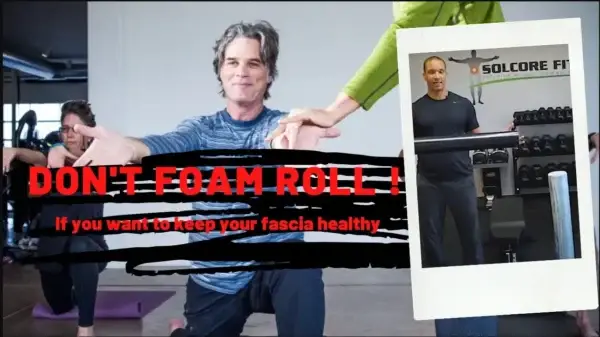
Foam rolling is widely used to “loosen” muscles and relieve tension—but evidence now shows it may actually damage your fascia, the tissue connecting every part of your body.
The Science: How Foam Rolling Impacts Fascia
Fascia is a sensitive, dynamic system that absorbs shock, communicates feedback, maintains posture, and coordinates movement. Forceful rolling—especially with dense foam or PVC—can create microtrauma:
- These tiny tears trigger local inflammation and tissue stress, not true repair. Your body thinks it has a minor injury and launches an inflammatory response.
- Persistent foam rolling leads to more soreness and dysfunctional compensation—not better movement.
While foam rolling gives short-term flexibility gains, research shows they fade in minutes. The tissue rapidly returns to its baseline state, meaning it does not create lasting change or correct faulty movement patterns.
- In at-risk populations (osteoporosis, diabetes), foam rolling can even cause fractures or complications due to excessive load.
Why “Feeling Good” Isn’t Always Healing
Many use foam rolling because it feels good, especially after tough workouts. But relief doesn’t mean restoration—rolling compresses rather than slides or aligns fascia, masking bigger movement dysfunctions and possibly worsening nerve or tissue health in the long run.
Safer, More Effective Alternatives
- Myofascial stretching: Specific stretches lengthen and hydrate fascia, opening chains, and restoring true body balance.
- ELDOA: Targeted postural stretches decompress joints, improve tissue health, and create long-lasting mobility.
- Manual therapy (“pumping”): Trained therapists gently slide fascial layers, restoring gliding and communication—rather than just compressing.
These approaches build true resilience, pain relief, and healthy function for your whole system.
Learn more about safe, restorative techniques for fascia health:
Myofascial Stretching: The Best Total Body Active Stretches
Find out more @

Leave a Reply